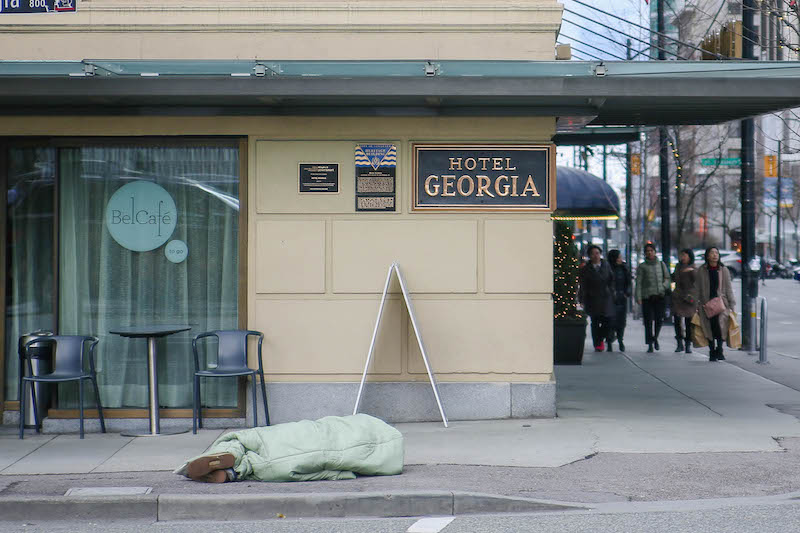The BC Coroners Service still hasn’t produced a report on the number of deaths of homeless people in 2017, with no date in sight for publishing the data.
The report is already seven months overdue, based on last year’s summary covering 2016 deaths which was released in March 2019.
Sean Condon, the former executive director of the street magazine Megaphone, said the delay is unacceptable — especially considering that last year’s report showed there had been a 140-per-cent increase in deaths between 2015 and 2016.
“These [numbers] really tell the story of the full impact and tragedy of homelessness on individual lives and the families and communities that are connected to them,” Condon said.
“The fact that for somebody who is homeless, the median age of death for someone is about half of the life expectancy for the average British Columbian, just amplifies the failure of our government to take care of its people.”
The data released by the Coroners Service in 2017 data showed that the median age of death for unhoused people was 40 to 49, compared to 76.4 years for the rest of the population.
Homelessness continues to be a pressing issue in Vancouver and communities across B.C. COVID-19 restrictions pushed more people into homelessness and several cities have large encampments in parks.
The overdose crisis has also worsened, as border closures meant the drug supply became more toxic and people who use drugs became less likely to use harm reduction services like safer consumption sites.
Condon began pushing the coroner to publish data on the deaths of homeless people after reporters Monte Paulsen and Tom Sandborn were able to get data for two years, 2006 and 2007.
Paulsen and Sandborn wrote a story on the data published in The Tyee in 2008.
But it wasn’t until 2014 that Megaphone was able to publish its first report on homeless deaths, based on data for 2006 to 2013.
Megaphone continued to ask the coroner for the data every year and published annual reports.
The Coroners Service report on 2015 showed 73 deaths, the most ever recorded. The data for 2016, released in 2019, showed there had been 175 deaths — a 140-per-cent increase. The service did not produce any report in 2018.
The jump in deaths was likely caused by the huge spike in overdose deaths in the same period, said Condon, who is now the managing director of 312 Main, a building owned by the City of Vancouver and operated by the Vancity Community Foundation.
In 2017, Megaphone started a petition calling for the B.C. government to set up a death review panel to examine homeless deaths and how they could be prevented.
While both the NDP and Green parties have said they support the idea of a death review panel, it has still not yet been created, said Condon.
A Coroners Service communications staffer said the service has been busy dealing with the COVID-19 pandemic and the opioid crisis. Colleen Hildebrandt said she could not provide an updated timeline for the release of the report on the deaths of homeless people in 2017.
The service said investigations into some 2017 deaths “may still be ongoing.”
Condon acknowledged the process for compiling the data is complicated. It only includes deaths that have been investigated by the coroner, and establishing that someone was homeless when they died can be difficult.
But he said the delays show the B.C. government needs to provide the Coroners Service with resources to be able to produce a timelier report.
Condon said there’s “no legitimate reason” the service should not be able to report 2019 deaths now, 10 months after the year ended.
“We see with the overdose crisis, like we can get those numbers within a few months. That takes a lot of resources and action to get those numbers, no doubt. But why can’t we do the same [for homelessness]?”
Full disclosure: Sean Condon is married to Robyn Smith, The Tyee’s editor in chief. ![]()
Read more: Rights + Justice
















Tyee Commenting Guidelines
Comments that violate guidelines risk being deleted, and violations may result in a temporary or permanent user ban. Maintain the spirit of good conversation to stay in the discussion.
*Please note The Tyee is not a forum for spreading misinformation about COVID-19, denying its existence or minimizing its risk to public health.
Do:
Do not: